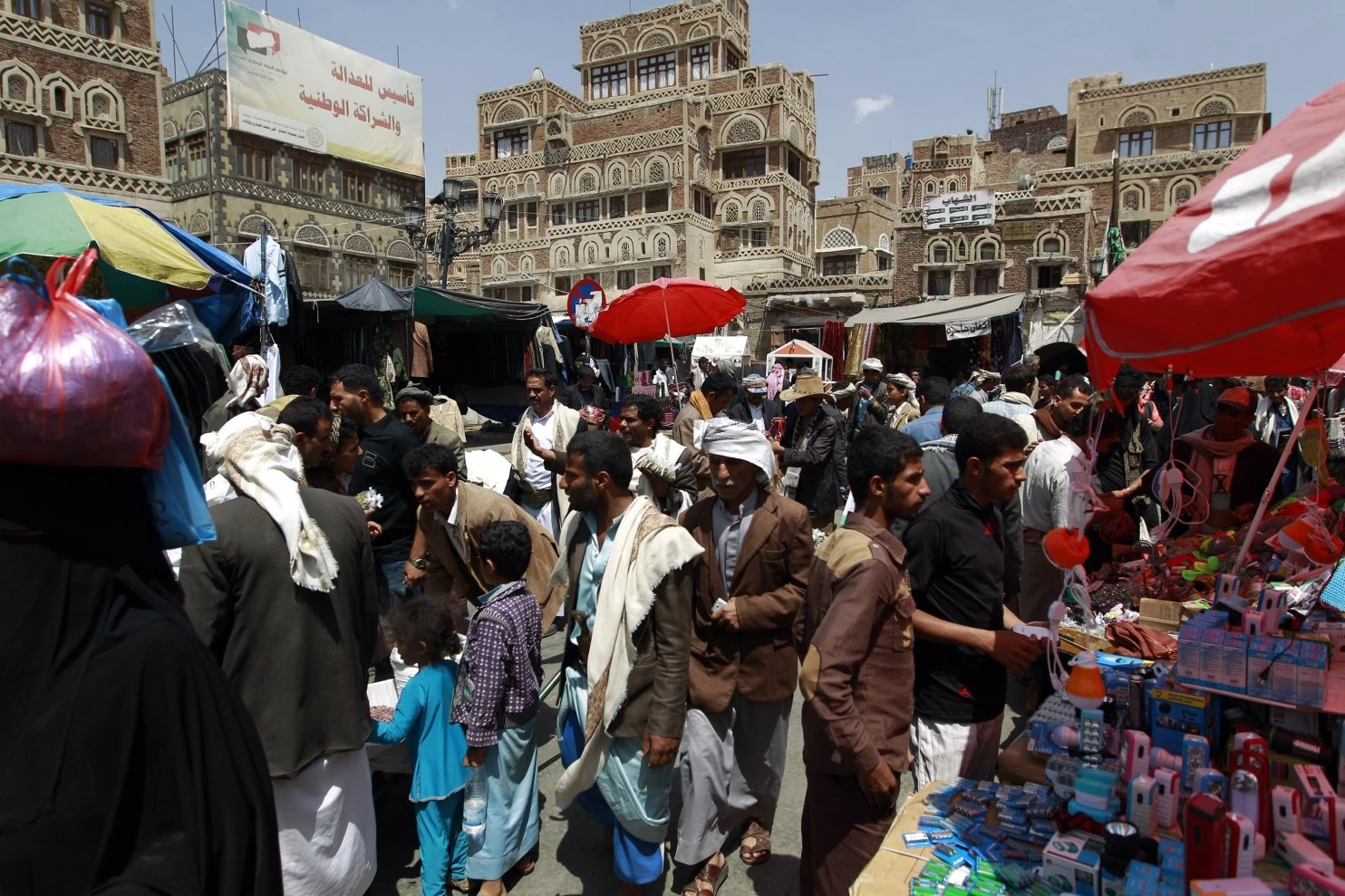
’As Bombs Fall, One Market in Yemen’s Capital Still Draws Crowds’- The Washington Post
Fighter jets roar overhead. Seemingly nonstop airstrikes destroy neighborhoods and the people in them.
But even amid the devastation of war, one market in the heart of Yemen’s capital manages to draw crowds.
On Jamal Street, perhaps Sanaa’s busiest shopping area, a conflict that for months has ravaged this Arabian Peninsula country isn’t scaring off patrons or forcing the closure of shops that sell everything from nuts and spices to gold, toys and clothing.
Hundreds and possibly thousands of shoppers still come daily for the abundance of Chinese-made products. But more than just bargain prices, Jamal Street offers people such as Abdulfattah Mohammed Rashed a now-elusive commodity in Yemen - a sense of normalcy.
"People are dying, running out of food and money. You can’t sleep at night because of the bombings. It’s desperate. But then you come to Jamal Street, and you realize there is still so much spirit in Yemen," said Rashed, 44, a father of four young children.
On Tuesday, he browsed for shoes amid an unusually large number of shoppers who were making last-minute purchases for the Muslim holiday of Eid al-Adha, which began Thursday and lasts here until Monday.
People haggled over prices and stocked up on dress shirts, jewelry and perfumes. They caught up with friends, discussing hardship but also sharing laughter. The din of honking cars and shouting salesmen conjured images of a more peaceful pre-war Sanaa.
Nowadays, such outings in Yemen can be lethal.
In March, a military coalition led by Saudi Arabia launched a punishing air war against Shiite rebels known as Houthis, who control large parts of Yemen, including Sanaa. The Saudi-led air raids...have pulverized civilian areas, including markets and homes.
More than 4,500 people have been killed in the fighting, which escalated after the Saudi coalition launched a ground assault two months ago.
The university attended by Haneen Saleh Hizam has closed because of the war. Now she spends most of her time at home worrying about the aerial bombardments that have killed scores of civilians in the capital.
"It’s good to get out of the house," the 20-year-old interior design major said as she strolled past the dusty shops of Jamal Street in the traditional robe-like garment worn by most Yemeni women.
As she spoke, the unnerving rumble of a not-so-distant warplane could be heard.
"Of course, I’m depressed," Hizam said. "But I’m here to help my family do the shopping."
War has ruined Yemen’s economy. Supplies of food, fuel and water are running dangerously low, leading to warnings from UN officials and aid workers that the desperately poor country of 25 million citizens could experience famine.
Signs of worsening poverty abound on Jamal Street, where many gaunt children beg for money and food. Prices here are rising because the fighting - including a Saudi-led air and naval blockade of the country - has made it difficult for businesses to bring in goods.
"We import a lot from China, but the war has stopped that," said Taha al-Dubaai, an accountant at a shop that sells clothing for women and children.
Despite the obstacles, the area still attracts people like Abdullah al-Bukair, a 33-year-old raisin farmer. His 2-year-old son needs clothes, so he traveled 25 miles in a shared taxi from his village. The selection and low prices persuaded him to leave home and brave the air raids that have killed acquaintances and wounded loved ones, including a cousin, he said.
"You risk your life going outside and wandering," he said as he examined socks displayed on a wooden cart.
The shops along the mile-long street - named after former Egyptian president Gamal Abdel Nasser - aren’t all that different from other commercial areas in the city. Unlike Sanaa’s historic Old City, a UNESCO World Heritage site, the place lacks charm.
Hamoud al-Oudi, a social sciences professor at Sanaa University, partly attributed Jamal Street’s enduring popularity to its one-stop-shop convenience. But he also credited the "defiant" spirit of Yemenis for the consistently high turnout there.
"Yemenis want to live. Despite such difficult circumstances, you still see that people are able to go out and shop," he said.
Afrah Abdo Ahmed, 46, a teacher, echoed that sentiment.
"We have to try our best to be happy," she said as she shopped for clothes for her four children. In July, fighting forced Ahmed and her family to flee the city of Taiz for the relative safety of her parents’ home in Sanaa, she said.
She came to Jamal Street to stock up on food and clothes for the family’s Eid al-Adha celebration, which commemorates the willingness of Abraham - or Ibrahim in Arabic - to sacrifice his son at God’s command.
All Yemenis are being forced to make sacrifices, she noted, even when it comes to shopping.
"This year, we can’t buy as many clothes, nuts and other things for the house like we used to," she said. "But we have to do our best for our children."
